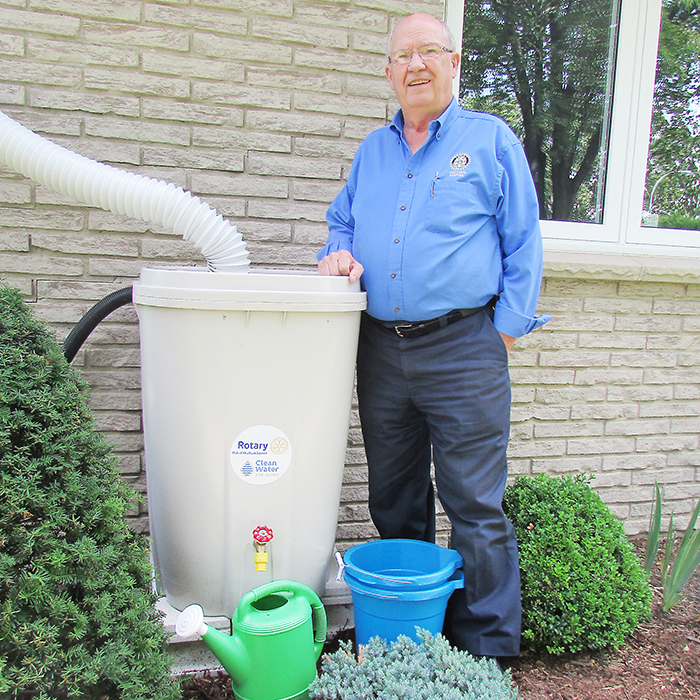
Clean water is something many of us don’t even think about. People such as Chatham’s John Lawrence want to change that.
We live in the heart of fresh water, as the Great Lakes comprise 84% of North America’s surface fresh water, and 21% of the world’s.
Lawrence is the lead driver of the Rotary Club of Chatham Sunrise’s Clean Water For Living project. It provides information to increase awareness of current water quality issues, possible remedies and future possibilities.
Respect, protect and conserve clean water are key messages for the project.
Water stewardship is one of six areas of focus for Rotary International. In fact, Rotarians are known for their work abroad in providing potable water and improved sanitation in Third World countries. But more can also be done right here at home, Lawrence said.
“Everyone around here can turn on the tap and they take clean water for granted,” he said. “There are issues. Something can be done about those issues.”
Those concerns include nutrient runoff from agriculture and sewage, pharmaceuticals making their way into the fresh water, and micro plastics.
“We have so much water around us, nobody realizes we’re adding micro plastics and pharmaceuticals and so forth to the water,” Lawrence said. “It’s just building up over a period of time. It’s not going anywhere.”
The micro plastic issue goes beyond the use of micro beads in the beauty industry, he added. He said it is coming from other products, such as plastic bottles, as these products break down.
“There are about 2,500 of these micro particles per football field of water. It doesn’t sound like much,” he said. “But there weren’t any of these just 10 years ago.”
The Clean Water for Living project keeps Lawrence pretty busy these days as the website, cleanwaterforliving.com, is getting noticed. He’s visiting other Rotary Clubs, for example, and sharing the project. That includes a recent trip up Highway 401 to speak to the Rotary Club of Toronto at the Royal York Hotel.
“It’s great they are interested in our project,” he said.
The website has a number of videos featuring agri-businesses, residents, and even the Ursuline Sisters discussing their efforts on maximizing water conservation.
Lawrence said they filmed another video this past spring, focusing on the Lower Thames Valley Conservation Area’s property on Thames Street in Chatham.
“The project looked at taking the runoff from the roof at the LTVCA and filtering it through several ponds,” Lawrence said. “It was going through the sewer system before.”
LTVCA personnel also planted vegetation along the ponds – or bio swales.
“The plants they’re planting will soak up a lot of the negative nutrients,” Lawrence said. “In the meantime, the water goes through that series of swales and goes out into the river in a regulated manner.”
From a residential perspective, homeowners may not be able to copy this filtering process, but the Rotary Club offers up another sewer diversion option – rain barrels.
“It’s a better utilization of water,” Lawrence said. “Too many people have their eavestroughs tied into the sewers. This contributes to surges when we have storms.”
Lawrence’s backyard sports a Clean Water for Living rain barrel tucked up against his house. A downspout directs water into the large barrel during the summer months, for use in watering his gardens.
In the winter, the downspout is connected directly to the sewer system.
Lawrence sees multiple benefits from using a rain barrel.
“Rain barrels save people money,” he said, as you utilize gathered water rather than municipal water that you have to pay for – coming and going. “It’s a purer product out of the sky, rather than after it goes through the chlorination process, to use on your vegetables and gardens.”
The barrels also have screening to prevent insect breeding.
The club still has a number of rain barrels available for purchase. Cost is $90, including tax. The barrels are available through any Sunrise Rotarian or by contacting Betty Manso (mansoe@teksavvy.com) or Doug Goldsmith (telbelli@sympatico.ca).






